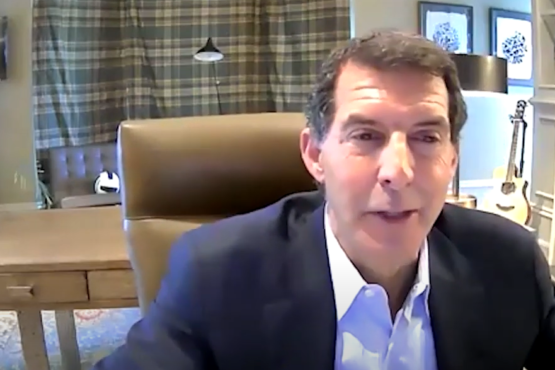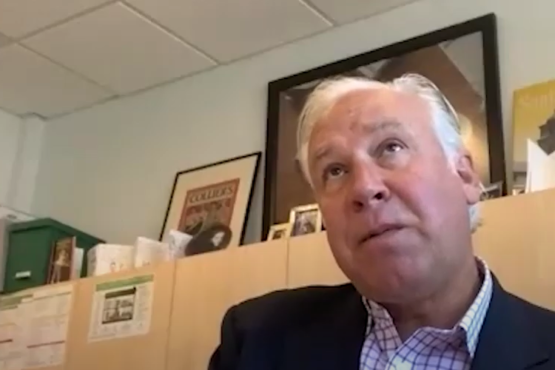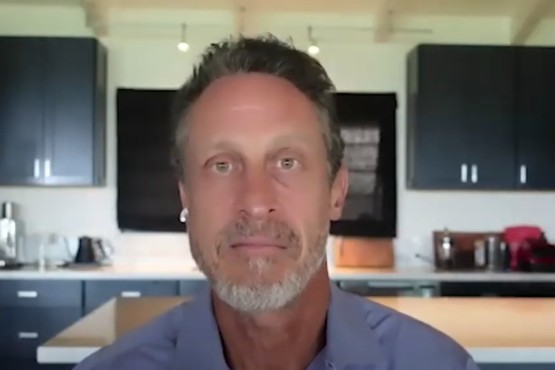In today’s episode, I’m excited to have Dr. Jeff Patton of OneOncology joining us. Dr. Jeffrey Patton is the president of physician services at OneOncology, a rapidly growing nationwide partnership of independent community oncologists, serving patients in the communities in which they live. Dr. Patton serves as CEO and chairman of Nashville based Tennessee Oncology, one of the largest community oncology practices in the United States. In our episode, he shares how he has seen cancer care evolve over the decades, the exciting new role genetics play and how data and technology are transforming delivery.
Sen. Bill Frist: Welcome to A Second Opinion podcast, where we’re rethinking American health. I’m your host, Senator Bill Frist. To make sense of all the dynamic perspectives in healthcare, you need a trusted source engaging at the intersection of policy, medicine, and innovation. You need A Second Opinion, a podcast where it all comes together. In today’s episode, I’m excited to have Dr. Jeff Patton of OneOncology joining us.
Sen. Bill Frist: But before we get started, I want to thank our sponsors. A Second Opinion Is powered by Tivity Health, lifestyle brands that transform healthy living for adults through nutrition, fitness, and social connection. We’re also brought to you by PYA, providing health care insights and strategy for nearly 40 years. Learn more at pyapc.com.
Sen. Bill Frist: Now, let’s turn to the episode. Dr. Jeffrey Patton is the president of physician services at OneOncology, a rapidly growing nationwide partnership of independent community oncologists, serving patients in the communities in which they live. Dr. Patton serves as CEO and chairman of Nashville based Tennessee Oncology, one of the largest community oncology practices in the United States.
Sen. Bill Frist: In our episode, he shares how he has seen cancer care evolve over the decades, the exciting new role genetics play and how data and technology are transforming delivery. Now, please join me and our guest for A Second Opinion.
Sen. Bill Frist: OneOncology, a new company with a great vision, but it’s new in the sense that it’s been around less than a year. But it has a much, much longer history in terms of the practice, and the substance of what the company is all about. So let’s jump right in.
Sen. Bill Frist: What is OneOncology, how old is it and where did it actually come from? Then a little bit about where do you think it will be going over the next year?
Dr. Jeff Patton: Sure. OneOncology was founded in September, but we had been working on it for about two years before that. OneOncology is a physician led, physician owned oncology specific practice management company. A lot of who we are was based on our founding practices, Tennessee Oncology, West Cancer and New York Cancer Blood.
Sen. Bill Frist: So, all oncology.
Dr. Jeff Patton: All oncology.
Sen. Bill Frist: And the OneOncology is practice management. Just so we all level set what that is, is that where the oncologists themselves don’t have to worry about all the administrative things? When you say practice management. What does that mean?
Dr. Jeff Patton: For me, it’s really the best of both worlds. The practices retain their own tax ID and local management. We have centralized, shareable, exchangeable expertise that we share with individual practices. It’s an economies of scale and economies of intelligence. We take IT expertise, HR expertise, managed care expertise at the central level, that is more talent than we could afford as individual practices. So we take our scale, to up our game as far as shared services.
Sen. Bill Frist: Yeah. So to keep it really simple. the administrative and the expense investment, like in information technology, if you have a practice of a few doctors, you can’t really go out and buy that sort of expertise. But if you’re sharing that, three practices, or five practices or a hundred practices, you’re getting all the IT, but incrementally at a much lower cost.
Dr. Jeff Patton: And, I think, at a higher quality and more sophistication than we could afford as individual practice. It really is sharing the expense, to to buy something that you couldn’t afford to as individuals.
Sen. Bill Frist: Right. And the oncology, are these academic practices, or are they urban practices, are they rural practices that OneOncology is focused on?
Dr. Jeff Patton: It’s community oncology based, which we like to consider academic quality given at close to where you live.
Sen. Bill Frist: Where is most oncology, cancer therapy given today.
Dr. Jeff Patton: So most oncology care is given in an outpatient setting. It used to be an outpatient community setting like us, which is urban and rural. Now a lot more hospital based, but it’s still an outpatient specialty for the most part. About 80 to 90% of what happens in cancer occurs in an outpatient setting. In 2002, about 80% of cancer care was given in an independent community oncology practice. Now it’s about 40%, and the other 60% are physicians that work for a health system.
Sen. Bill Frist: And that trend of oncologists from the community-based practices, inside to larger practice, whether it’s an academic, health center or a system, what’s precipitated that over these last 10 years?
Dr. Jeff Patton: It’s a business principle. When you decrease margins, it forces consolidation. The government and commercial payers have decreased their reimbursement for most of our services, and so if you’re going to survive those kind of margin pressures, you have to have scale. It’s the same reason there’s only X number of airlines, and X number of distributors. In small margin businesses, you have to have tremendous scale to survive.
Sen. Bill Frist: Yeah, so we’ve seen that most dramatically with cardiologists. Almost all cardiologists today work for a system, or for an academic healthcare center. Unheard of 20 years ago, or it’d be a very small percentage. So it’s really basically the same principle-
Dr. Jeff Patton: It is.
Sen. Bill Frist: … of people gravitating in. Do you believe that with an entity like OneOncology that that will stop over time, or will that 40% hang at 40%, or do you think it will reverse it?
Dr. Jeff Patton: I think it will reverse over time. We know, and I talk about this all the time, that there’s very good data that community is the low cost provider. We know that for a fact, the payers know it. We think we’re at least equal quality and maybe maybe better. It’s on us to prove that. And when I talk to my business buddies, in most businesses if you have a value proposition you get rewarded for it. But healthcare is not a free market.
Dr. Jeff Patton: But as we keep talking about value, at some point you would think that that value would be recognized, and it would allow some shift back to independence. And we’re having discussions as you know, with payers and folks that understand that value, and they’re looking at, pushing patients our way in narrow networks, and so I think the pendulum is going to swing back.
Sen. Bill Frist: That’s really interesting, the value… and it really, value-based care is kind of a catch-all term, and it’s used in loose ways and specific ways all around the country. But generally the fee-for-service, where you’re just paying for services versus value-based care, fee-for-service is still fairly dominant in the Southeast part of the country, although it’s moving to value-based care as well.
Sen. Bill Frist: But in the value-based ratio, value means outcomes and results in quality and the numerator and the denominator, some sort of cost. If it’s increased value, community-based oncology, is it mainly in the lower cost, in the denominator for the same outcome, the same quality, the same result?
Dr. Jeff Patton: Yeah, I think it is. I think it’s more in the cost, at least today in the fee-for-service world, we all know that there’s fights where you used to work in Washington, D.C. about site of service, and the least expensive place to deliver care is in the home. The next would be in our office, and the next is in the hospital. So there is a cost differential just for doing exactly the same thing, and having the exactly same outcomes. It’s just less expensive in our setting.
Sen. Bill Frist: In the last 10, 15 years, there’s been this trend out of the community, and this may arrest the trend or it may reverse it. As a practicing community oncologist, and you’re taking care of hundreds and hundreds of patients who have cancer and/or have had cancer in the past, what is the advantage of being able to stay community-based versus working for a academic center or a system? Is it autonomy? Is it lifestyle? Is it economic incentive? What’s the advantage?
Dr. Jeff Patton: I’ll start with the last, due to some other things we can talk about if you want. The economic equation is not as different and particularly with some of these smaller practices, their economics got to the point where their economics improved going into the hospital. But there is a significant loss of autonomy. I say this, it’s not PC and it’s not everywhere, but there certainly are some employed situations where doctors feel like widgets. I don’t know if the people that manage them think of them as widgets, but that’s how they feel. They lose that autonomy.
Dr. Jeff Patton: We are fiercely independent, most doctors, we’re kind of bred that way. Certainly our generation of physicians are fiercely independent. So for me, I like working for myself, and we like having employees that worked for us. As you know, people that work for you treat you differently than people that worked for somebody else, and that’s just how it is. So that independence is a big advantage for us as a physician.
Dr. Jeff Patton: We also think our care delivery is significantly more convenient for patients, and at the end of the day everything we do is about what’s best for patients. Having the convenience of delivering care 100 miles outside of of Nashville… chemotherapy’s very portable. So we can take Nashville academic quality care and drive it two hours outside of town, so that grandma, and grandpa and aunt Jane don’t have to drive to Nashville.
Dr. Jeff Patton: Our therapy still has toxicity, and so to drive a couple hours to get something that makes you feel bad and then drive back a couple of hours, to me doesn’t sound like a great experience. So if we can deliver the exact same quality care close to where you live, that sounds like a value proposition.
Sen. Bill Frist: Yeah. No, exactly. The affordability end of it is about the same, or even better in the community. The quality and outcomes are pretty much consistent across, with the right evidence-based guidelines in there. Then that third point of the access for the patient, in a world that needs to increasingly become patient-centric, and looking at the convenience and ease of getting that therapy, especially the chronicity of on oncologic patients just make so much sense.
Sen. Bill Frist: So OneOncology, you said, it’s really just in September of 2019. But the practices that are involved, tell us a little bit about the practices that you brought together to form OneOncology.
Dr. Jeff Patton: We looked for cultural fits, so practices that are committed to seeing every patient that comes to the door, taking care of geri care, doing the right thing, not turning away patients. Financially sound and sophisticated, so well managed already. Then third, and should have started with, innovative. All three of the practices do clinical research in the community.
Dr. Jeff Patton: We looked for like-minded practices to be the foundation. We really wanted to share the best practices from these three practices, to create what we go out to the marketplace with, which is our best practices. So, it’s practices of the best practices. That shared intelligence is something that we want to share with a national footprint going forward.
Sen. Bill Frist: Yeah. And if you had three practices that really are, and these three are nationally regarded in terms of outcome, results and quality. I see how that culture, you do want that to be the core.
Sen. Bill Frist: You mentioned in your third point innovation, the clinical trials. I think a lay person would say, “Well I would think the academic health center is where all the research is being done. And we know there’re not cures to all the cancers, and I know going to be a tough therapy. Therefore I’ll go to the academic health center, because they’re doing more innovation, and more clinical trials, more research.” What is the reply to that?
Dr. Jeff Patton: In cutting edge practices like ours, it’s the other way around. We put more patients at Tennessee Oncology on clinical trial last year than Vanderbilt did. It doesn’t mean we’re better than Vanderbilt, we just are doing more clinical research. They do things that we don’t do. We do things that they don’t do, and we kind of stay in our lanes. But I would say that of these three practices, certainly in Memphis, the practice does more clinical research than any other setting in that city.
Dr. Jeff Patton: The other group’s in New York, which the bar’s a little higher with about 10 academic medical centers. So, in aggregate they probably do more.
Sen. Bill Frist: So, your initial impression wouldn’t be that. So you can stay close to home, you get a great quality of care, you have access to equal to, as much as or possibly more innovation. What’s the downside, what is the underbelly of all of this. Because in our description right now and with the practices that you have, you’d say, “Well this is definitely the way to go for everybody.” Is there a flip side to all of this?
Dr. Jeff Patton: The soft underbelly would be, if we get it wrong, and if we together come up with a recipe that spread across the country and we got it wrong, you don’t want to spread something that wasn’t right. We think that risk is really low.
Sen. Bill Frist: Yeah. Because you’ve already proven- [crosstalk 00:13:19].
Dr. Jeff Patton: Because we’ve already proven. We’ve already proven- [crosstalk]
Sen. Bill Frist: Tennessee Oncology- [crosstalk 00:13:21].
Dr. Jeff Patton: … the module.
Sen. Bill Frist: … is how old? How old is Tennessee Oncology?
Dr. Jeff Patton: 35 years.
Sen. Bill Frist: 35 years. So in truth, you’re taking 35 years of history, and Memphis is probably the same.
Dr. Jeff Patton: Yes. [crosstalk] Almost exactly.
Sen. Bill Frist: And New York, and you put those together. So, you’ve got the proven track record.
Dr. Jeff Patton: Yeah, but anytime you standardize something, if you don’t standardize the right thing- [crosstalk]
Sen. Bill Frist: That’s right.
Dr. Jeff Patton: But, we think that risk is- [crosstalk 00:13:39].
Sen. Bill Frist: Taking it to scale nationwide.
Sen. Bill Frist: Now, a quick word from our sponsors that make this podcast possible. Tivity Health does health differently. It promotes a proactive approach in achieving a healthy lifestyle. It embodies the leading social determinants of health: food insecurity, physical activity, and social connection. With this family of healthy lifestyle brands, including Silver Sneakers and Nutrisystem, Tivity Health is making an impact and reducing factors that lead to serious health issues and high medical causes. Such as chronic conditions, obesity, inactivity, social isolation and loneliness. To learn more, go to tivityhealth.com.
Sen. Bill Frist: Support for a second opinion comes from PYA. The business of healthcare is complicated, multiple interests navigating a web, constantly changing regulation. It can be overwhelming. For nearly 40 years, PYA has provided timely insight and strategy. They call it Vision Beyond The Numbers. It’s why they have clients in every state, and why modern healthcare ranks PYA among the top winning consultants in the country. PYA professionals take their responsibilities seriously, because they keep in mind beneath all the complexity is a patient in a room with a doctor, and that’s what really matters. Learn more at pyapc.com.
Sen. Bill Frist: And now back to the episode.
Sen. Bill Frist: Tell me about the role of information technology. There seems to have been this huge rush over the last five years, and especially in the field of oncology, of focusing on data, and collection of data, standardization of electronic health records. I think uniquely among all the medical specialties, it’s been on the forefront. How do you incorporate that in, and what advantage is it to the patient ultimately, but also to the physicians themselves.
Dr. Jeff Patton: Regardless of the industry, being on a common technology platform is critical. If you’re on different technology platforms, you can’t communicate with each other, you can’t learn from each other. And so we will have a common technology platform, which is, as you know, the Flatiron platform. Having a common technology platform allows us to aggregate our data.
Dr. Jeff Patton: Everybody hears about big data and that means a lot of things to different people. But it’s not rocket science. I know that the more data you have, the more access you have to insights. So we will use our data to develop actionable insights, that that translate directly back to better out outcomes for patients. But also, hopefully we can help pharmaceutical companies accelerate drug development.
Dr. Jeff Patton: The reason that there’s so much focus in oncology, is about about 80% of drugs under development from Life Science are oncology products. They can’t develop those products without data, and so I think that’s why you’re seeing more focus on oncology and our field is changing faster than any other field. Again, I’m an oncologist, so I have a bias. But I think most people would agree that our science and technology, which for most of the time is drug, is advancing faster than any place else. You need access to data to advance that science.
Sen. Bill Frist: So each of the practices that you bring in to OneOncology, are on the same electronic health record?
Dr. Jeff Patton: That’s correct.
Sen. Bill Frist: And that therefore they’re able to share or assimilate data, share data, coordinate data across a single platform. Are all community oncologists around the country on the same platform?
Dr. Jeff Patton: No. No, we’re not. There are several oncology specific platforms that are in the marketplace. I think Flatiron’s OncoEMR has the highest market share. But at least for OneOncology, if we develop a a management services agreement with a practice that’s not on a OncoEMR, Flatiron’s, we’re going to try to move them over or we will move them.
Sen. Bill Frist: Yeah, huge advantage.
Dr. Jeff Patton: Just because, it just has to be a common platform.
Sen. Bill Frist: Yeah, a huge advantage to the patient. To the physician, to the patient. Oncology care changes, I mean, it’s so dramatic to where we are today versus five years ago. If you take a patient five years ago, and you can take any cancer that comes to your mind, and you take that same patient today… and you’ve been at it for 20 years?
Dr. Jeff Patton: 25.
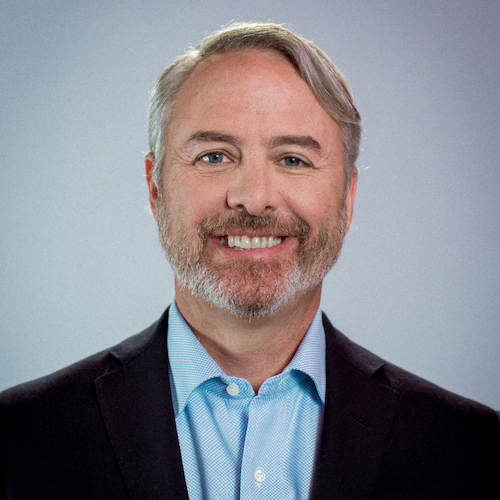
Sen. Bill Frist: 25 years, what’s the difference in what you can tell a patient today with a cancer versus five years ago?
Dr. Jeff Patton: I would say it’s not universal, but more and more we can tell patient’s, “This is the genetic driver of what’s caused your cancer, and this is a therapy targeted to that driver.” That’s one.
Dr. Jeff Patton: The second is, if we can’t do that, for certain cancers, we’ve learned that we can unharness the patients own immune system to do what it was designed to do, which is kill infection and kill cancers. Cancer is smart, cancer has a mechanism to turn off our immune system’s ability to identify it. And so we’ve developed therapy that turns off that turn off, it’s called a checkpoint inhibitor. That releases your own immune system to do what it was supposed to do, that the cancer had turned off. It’s fascinating. But for about a 25% subset of patients, it’s a tremendous innovation.
Sen. Bill Frist: Is that where the most excitement is over the next five years, to be able to mobilize one’s own immune and own self systems to fight cancer?
Dr. Jeff Patton: I think so, but I’m more excited going forward about combining these different approaches. Because we know that each one of these approaches has some benefit, but it’s still not curing a lot of these patients. So if we can put several of these different approaches to fighting cancer together, we might not cure these patients. But at least my goal when I talk to patients is, “Look, if I can’t cure your cancer, but if I turn it into a chronic disease and you pass from something else, then I’ve at least been successful.”
Sen. Bill Frist: Yeah. And genetics, we all know the Human Genome Project, hugely successful in about 2002 in defining the human genome. There was a lot of excitement early on that this is going to be the roadmap to cure of cancer, and cure of heart disease, cure of a whole bunch of things. But paint the picture a little bit of the role of genetics, where we are today, and what do you see as things unfolding over the next few years.
Dr. Jeff Patton: Yeah, this 80% of products in develop being cancer products, most of those are a direct response to the learnings we got from the Human Genome Project. That learning has allowed us to do these targets, where we find this is not somebody else’s cancer. Hope this doesn’t happen to you Bill, but Bill, if this is your cancer, we’re going to analyze that cancer. And if we find out the genetic driver, and we can only have found that because of what we learned from the past and the Human Genome. Yeah, that’s what allowed us to identify that and and be that driver.
Sen. Bill Frist: So, it’s a really personalized- [crosstalk 00:20:43].
Dr. Jeff Patton: Truly, precision.
Sen. Bill Frist: … with the precision. When people say precision medicine, and you always get asked, “What do you mean?” And personalized medicine. But this is the ultimate, with your own human genome, whether it’s a de facto or it’s just an a normal expression, you can actually tailor around that in order to treat.
Dr. Jeff Patton: I was in training when we didn’t really know what HIV was. We knew it was something new and not great. Fairly quickly we’ve been able to not cure HIV, but literally make it a chronic disease. But it wasn’t one drug. It took combination therapy, to keep that disease from mutating and outsmarting the therapy that would work for a while. I think we’re going to look at the same thing in oncology, where it’s going to take a cocktail of medicines to keep that cancer from outsmarting our theory.
Sen. Bill Frist: Yeah. The number one issue now on people’s minds when they think of health and healthcare…. And these things change every three or four years, but clearly is price and cost. Cancer therapy is and can be a exorbitantly expensive, but much of that cost centers around the drugs themselves. It costs well over a billion dollars for each of these drugs, and sometimes several billion dollars coming in.
Sen. Bill Frist: If you take it back to the consumer standpoint, and people say, “Why do these drugs cost so much, and why are they increasing so fast when it comes to cancer?” What is the oncologist response? The oncologist is the person who’s closest to that.
Dr. Jeff Patton: Like most complicated things, I can do a pretty good job of arguing both sides and I’ll start with the manufacturer side. And to your point, it takes about $2 billion of investment to get an oncology product to market. Because you’ve got to pay for all the failures, and so you’ve got to build that cost in. That’s a pretty significant investment.
Dr. Jeff Patton: As an oncologist who everyday has to tell somebody, “I can’t help you any further,” then I want pharmaceutical manufacturers, Life Science, to innovate, and develop better products and bring me better. And so, it takes money to make money. So there has to be margin, there has to be profits to be reinvested in the company., I’m a capitalist and I think you are too. So, that matters.
Dr. Jeff Patton: On the other side, you can go too far. And because healthcare is not a free market, how are drugs priced, what will the market bear? Well they just keep pushing it, and pushing it and pushing it. And they’re business guys, I’m pretty sure that’s what we would do too. But at some point, at a society level we’ve got to say enough’s enough. The market can’t bear anymore.
Sen. Bill Frist: Yeah. Well it’s a complicated discussion. It’s clearly one, that it’s going to take policy, it’s going to take physicians, it’s going to take the private sector, it’s going to take the pharmaceutical industry all coming together.
Dr. Jeff Patton: Agreed.
Sen. Bill Frist: Slowly where we’re getting there, coming in. As we close, when did Jeff Patton decide he was going to become an oncologist.
Dr. Jeff Patton: Medical subspecialists do internal medicine, and I was one of those guys that liked everything. I was going to be a cardiologist, I was going to be infectious disease, I was going to be a nephrologist. This was back in when your exposure to oncology, it was all in-patient, patients were sick, and it was before we had good antinausea. My first exposure oncology was like, “I’m not sure, I don’t know about this.”
Dr. Jeff Patton: So I actually signed up at before my chief resident year, to to do a nephrology fellowship. The chief resident the year before me was doing his oncology fellowship. He came to my office and talked about how it’s moving to outpatient, how fun it was. So literally, he convinced me to change to become an oncologist. I went to the chairman of nephrology and said, “I’m sorry, but I’ve got to go do this. And he’s like- [crosstalk]
Sen. Bill Frist: Wow. Wow, wow. And your expectations at that point in time, have they been realized in terms of the- [crosstalk]
Dr. Jeff Patton: Even more so. I mean, so at that time I was really intrigued by it. Cardiology in the ’80s and ’90s, there was more innovation there. I mean, cardiologist was the place. And heart surgery, which you know a little bit about, that was kind of the cool innovative space. Since then, it’s all oncology. Some of that was serendipity. I didn’t know that would be true. But I wouldn’t change a thing.
Sen. Bill Frist: Yeah, this is a little bit unfair, [inaudible] very unfair to ask you, but again, I’m thinking about five years ago where a lot of cancers were just death sentences. And today, and I’m speaking as a physician, my observations are that it is bad, it is devastating, it is unfair. But there seems to be just so much more progress being made and hope, that the patient who does have cancer today, again, put everybody together, what can you tell them today versus five years ago?
Dr. Jeff Patton: I can tell them that “The outcomes, and the improvement in outcomes in the last five years have been remarkable. There’s a good chance that you’re going to live for years, regardless of what the new developments are.” But if you look at how the technology curves… what do they say? 99% of the technology that’s been invented in the history of [inaudible] is in the last 100 years, and the curve’s like this. Yeah. I think you can look a patient in the eye and say, “Who knows what we’ll have, if we can keep you alive another two, three, four, five years?” I don’t think that’s false hope. I think that’s real.
Sen. Bill Frist: It’s amazing. And with the doubling of medical information to every 73 days. And so, when you look at this rapidity of new discovery, of breakthrough therapies, and you have a doubling every 73 days. Again, there’s a huge amount of hope, which is realistic, that I think you can give to people today.
Dr. Jeff Patton: If you don’t mind, I’ll tell an anecdote.
Sen. Bill Frist: Oh, no. Love to hear it.
Dr. Jeff Patton: Of, we had a senior physician come to me, and he had to retire because of health problems. He was still fit, but he couldn’t see patients anymore. He looked at me, he goes, “Dang it, Jeff. We finally have drugs that work, and I got to retire.”
Sen. Bill Frist: I love it. I love it. And that’s exactly right. That’s exactly right.
Sen. Bill Frist: Well Jeff, congratulations on OneOncology. You’ve contributed so much to this community at the end to the nation, both through publication, and participation and taking care of patients every day. And now have this new entity, that is being operated out of out of Nashville. It’s a home office, but a a core of practices that I can see will be expanding nationally. But congratulations on first, the initial dreams to do it. Then accomplishing what you have, and then this new stage where you can effect many hundreds of thousands and probably millions of people.
Dr. Jeff Patton: Thank you, Bill.
Sen. Bill Frist: Thank you for being with us.
Dr. Jeff Patton: We’re really excited about it. Thank you.
Sen. Bill Frist: Thank you, now. Appreciate it. Thank you.
Dr. Jeff Patton: Thank you.
Dr. Jeff Patton: This episode of A Second Opinion was produced by Todd Schlosser, the Modus Creative Group team, and Snapshot Interactive.
Dr. Jeff Patton: You can subscribe to A Second Opinion on Apple podcast, or wherever you are listening right now. And be sure to rate and review A Second Opinion, so we can continue to bring you great content. You can get more information about the show, it’s guests and sponsors at asecondopinionpodcast.com. That’s asecondopinionpodcast.com.
Dr. Jeff Patton: Thank you again to our sponsors, Tivity Health and PYA. Be sure to join us for our next episode with Emily Evans of Hedgeye Potomac Research. She’s a translator and tour guide for investors, seeking to read the tea leaves coming out of Washington, D.C.
Dr. Jeff Patton: A Second Opinion broadcast from Nashville, Tennessee, the nation’s Silicon Valley of health services, where we engage at the intersection of policy, medicine, and innovation.

